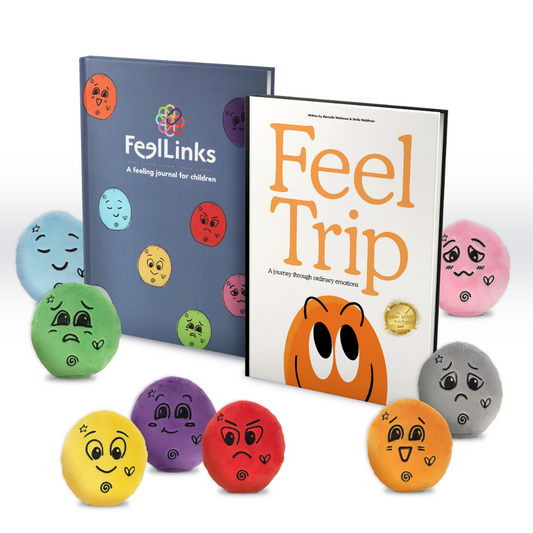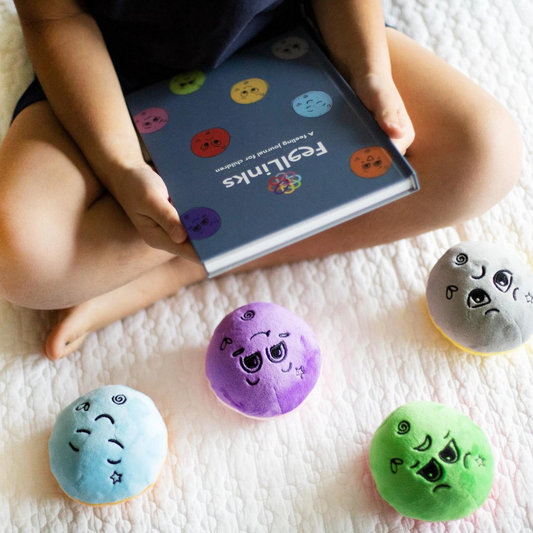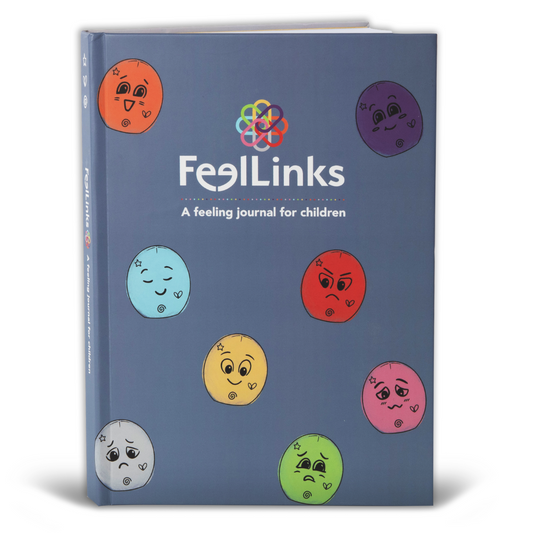The Close Connection Between Mental Health and Emotional Intelligence Skills
Share

Students in a kindergarten classroom using FeelLinks emotion plush dolls
for daily morning meetings, free choice play, one on one, and small group time
There is a close connection between mental health and emotional intelligence skills. I will highlight the impact in which understanding and managing our own emotions, and the emotions of others, greatly contribute to our overall mental well-being.
Emotional intelligence encompasses self-awareness, self-management, empathy, social-awareness and relationship skills. All of these together play pivotal roles in shaping one’s mental health journey.
Emotional intelligence contributes to our self-awareness, allowing us to recognize and understand our own emotions. Self-awareness is a foundation of mental health as it enables us to recognize, understand, identify and express our emotions. More specifically, with strong self-awareness, we are better able to identify our stressors, triggers, and areas that require more of our attention. When we are able to acknowledge and process our emotions, we can build resilience and better navigate the challenges that life presents us.
Emotional intelligence fosters effective self-regulation or self-management skills. The ability to manage emotions, especially in the face of adversity, is crucial for our mental well-being. Individuals with high emotional intelligence are better able to regulate stress, anxiety, and other tough emotions that present themselves throughout life.
Empathy is a key component of emotional intelligence and also plays a critical role in mental health. Understanding and sharing the feelings of others helps to foster meaningful connections and social supports. These connections contribute to a sense of belonging and diminish feelings of isolation and loneliness, which can often contribute to mental health struggles.
Relationship skills are another key component of emotional intelligence; building and maintaining healthy relationships. Positive social interactions and a strong support system are vital for mental health. Individuals with well-developed social skills are better able to navigate relationships effectively, fostering a sense of connection and belonging, reducing feelings of loneliness or isolation.
Emotional intelligence also plays a vital role in effective communication. Clear and empathetic communication is essential for expressing our needs, seeking supports, and navigating conflicts. Individuals who are able to express their emotions are more likely to receive the understanding and support they need - contributing to better mental health outcomes.
The close relationship between mental health and emotional intelligence reinforces the vital importance of developing these skills. By growing in emotional intelligence, we can enhance our self-awareness, regulate our emotions, build meaningful connections, and communicate effectively – all critical elements for maintaining and improving mental health.
Additionally, emotionally intelligent individuals tend to approach problems with a positive mindset, flexibility, and coping strategies. This positive mindset is a protective factor against mental health difficulties such as anxiety and depression; being better equipped to navigate setbacks, handle stress, and bounce back from adversities. Individuals who possess this confidence are more likely to tackle challenges, set and attain goals, leading to a sense of accomplishment and fulfillment.
In our fast-paced and inter-connected world, emotional intelligence skills are critical for maintaining mental resilience - empowering individuals to navigate the complexities of life, form meaningful connections, and build a foundation of emotional well-being that is essential for overall mental health.
It's never too early or too late to support your child in their emotional intelligence skills. I created FeelLinks tools to support you in supporting children to build foundational skills that will serve them throughout life.





